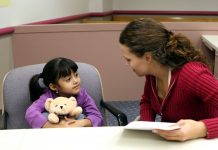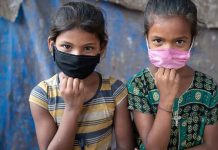This article is written by Manya Dudeja, from the University School of Law and Legal Studies, Guru Gobind Singh Indraprastha University. This article deals with the evil of sex tourism that dooms the innocent lives of children in India, its causes, and how the country intends to deal with the situation.
Table of Contents
Introduction
While tourism has been helping the Indian economy rise to new heights, child sex tourism has been plunging its soul to yet new lows. It is like a blot on the Indian map.
Child sex tourism refers to commercial sexual exploitation of children, which includes, sexual abuse of children, usually, but not always in tourism destinations. According to a report by the National Human Rights Commission (NHRC), India is fast becoming a hotspot for child sex tourism, with children being exploited in the name of pilgrimage, heritage, and coastal tourism. Maharashtra, Goa, Karnataka, Kerala, Tamil Nadu, Andhra Pradesh, West Bengal, and Orissa are some of the common hotspots for this immoral and illegal trade. This problem has only been further aggravated because of the silence of the community and its unwillingness to address the issue.
This article aims to explain the nexus between tourism and child prostitution in India, as well as the factors influencing the growth of child sex tourism in India and the legal structure that governs it.
Factors leading to the growth of child sex tourism in India
There are multiple factors that have contributed to the growth of child sex tourism in India. Below is an analysis of some of the factors that push children in this industry:
Poverty
Poverty is one of the prime reasons that makes young children vulnerable to sexual exploitation. Due to their poor economic condition, they find no other option but to sell themselves to foreign tourists who pay and feed them.
Consumerism and Materialism
Children from upper-middle-class households were also found to be involved in child sex tourism. Now, this is not because of poverty, but relative poverty. The increased material needs have led parents to often either allow their children to be with tourists or sell them through intermediaries.
Dysfunctional family background
Families in which children do not share a positive relationship with their parents are more vulnerable. Children in broken families often feel alienated and uncared for. Parents who are involved in drug abuse or alcoholism or are physically and mentally ill often lose control over their children who then might be lured by intermediaries.
Migration or unemployment
It has been found that there has been an increase in the migration of families who live in and around the places which serve as tourist destinations. The migrant children who already feel out of place at a new destination serve as easy targets and are hence more vulnerable to be exploited and involved in the racket.
Illiteracy or out of school children
Children who are themselves illiterate or belong to illiterate families that do not understand the consequences of these acts on the bodies and minds of children often let their children become part of such practices. Also, children who are out of the school or education system and work as unskilled manual labourers or live on the streets are more vulnerable to be sexually exploited.
Procurement within families
Children who have family members who are already involved in this trade are more likely to join them. This then runs in the family and children see it as a way of giving back to their elders.
Modern aids to child sex tourism
According to experts, modern technology and cheap travel have further perpetuated the problem of child sex tourism. Technology has also proved to be a safe space to carry out such activities and share child pornography without being caught due to the anonymity it offers. Child sexual predators have found a way to reach young children through the internet and messaging applications which gives rise to romance tourism. Romance tourism is when the tourists meet the children online and strike a conversation with them and make the children comfortable without hinting at any sexual intention. The abuser by doing this gains the trust of the child before abusing them. Later, the abuser might visit the child in his country, if the abuser visiting is a man, it may be called sex tourism and in case it is a woman, it may be referred to as romance tourism.
Law governing child sex exploiters
Although there is no uniform Central Act that regulates child sex tourism specifically, there are some Acts that include provisions that punish child sex offenders. They are:
Protection of Children from Sexual Offences Act, 2012 (POCSO)
The POCSO Act was established in the year 2012 to specifically deal with sexual offences committed against children. It includes offences like sexual assault, sexual harassment, and child pornography. The Act also lays down provisions to establish special courts for the trial of such offences and matters related to them. A special feature of this Act is that it is gender-neutral and recognizes that boys can be victims of sexual violence as well. This is one feature that other acts unapologetically lack. Here, a child is described as a person under the age of 18 years. The Act aims to provide protection to the child throughout the judicial process.
Immoral Traffic Prevention Act, 1956
This Act was formulated to suppress the immoral trafficking of women and children. Under this Act, the Central government has the authority to appoint trafficking officers. The Act was amended in 1978, 1986 and 1996 and was made more gender-neutral. The Act deals with the prostitution of minors (16- 18 years of age) and of children (below 16 years of age).
Indian Penal Code, 1860
Under the Indian Penal Code, 1860, it is Section 375 which attempts to safeguard women and girls from forced sexual intercourse, it defines rape with a minor. According to this section, sexual intercourse with a girl below 16 years of age amounts to rape, here, consent does not matter as a minor’s consent is no consent.
Child sex tourism in Goa
The sex trade modus operandi in Goa is carried out through the Internet. This maintains anonymity because the participants use fake identities and names. It also helps in the expansion of the consumer base. There are a number of websites and social media outlets that promote the sex trade and different types of sexual services. This history of tourism in Goa has seen an influx of young people attracted to Goa’s beaches and with the ever-increasing rise in international and domestic tourists visiting India, there has been an adverse effect on the children living there. There has been a rise in the trafficking of women and children for the purposes of child sex tourism.
Goa Childrens’ Act, 2003
In the year 2003, Goa became the first state in India that formulated its State legislation, the Goa Children’s Act, 2003 that would specifically deal with sexual offenses against children, and more specifically addressed the issue of child sex tourism which is not dealt by any other Central Act. In 2004, Children’s Court was also started, in order to establish a child-friendly court procedure and minimize the trauma that a child has to face. The Act covers a wide variety of activities and methods that the abuser may use to exploit the child. However, it has been found that the implementation of this Act has fallen short of its ideals.
Freddy Peats case
In the year 1991, the issue of child sex tourism came to light with the Freddy Peats case. Freddy was a 71-year-old Anglo-German who had an Indian passport. He was arrested for committing sex crimes against a minor boy in Goa. Under the cover of running a shelter home for children in South Goa, he used these children to produce pornography and also prostituted them to foreign child sex abusers. Pornographic photographs, narcotic substances, medicines, and syringes were discovered at Freddy Peat’s residence. The State government wanted to treat this as one isolated case but after this, a string of cases involving sexual abuse of children and their sale to tourists was unearthed in Goa.
Child sex tourism in Kerala
“This exploitation of children is shameful in a state such as Kerala which boasts 100 per cent literacy, political awareness, and steps taken to empower women.”
– Sugathakumari, chairperson of the State Women’s
Kerala is another tourist destination that has been plagued by the evil of child sex tourism. The trade has been flourishing in a few cities in Kerala. The predators prefer children as they believe there is a lesser risk of spreading HIV-AIDS through them.
Role of citizens and media
The government of India along with the civil society organization, citizens, and the media are responsible to safeguard children from sexual abuse, particularly in areas where tourism is prominent and children are more vulnerable to be abused. The family is the first and foremost agent of society in a child’s life and hence it is important that it sensitizes the child about the issue and acts with compassion and sympathy. In Sri Lanka, the media played an important role and was successful in spreading awareness about the issue. The media should be vigilant and should regularly alert parents about the circulation of any pornographic material. Highlighting the issue can also force the government to acknowledge the problem and do something about it. The citizens, especially those living in tourist spots should be alert about their surroundings and should caution the police, in case they come across any suspicious tourists with children.
Conclusion
India is shrouded in secrecy, unwilling to talk about the issues that make it uncomfortable. The evil of child sex tourism is on the rise, however, little is being done to mitigate it and spread awareness about the same. Globalisation, which has made the world more interconnected has only added to the menace. The economic benefits of tourism have led Indian states to include it in their development strategies, while conveniently ignoring the social costs of child sex tourism that come with it.
It is recommended that education be used as a tool to keep these children from falling into the traps of middlemen and pimps, children from a young age should be made aware of such practices and their consequences. Children who have been victims of child sex tourism should be provided with counselling and a chance to live their life with dignity. While the Central government should work on strict and better enforcement of already formulated laws to deter the offenders, state governments should cater to the special needs, depending on the extent and severity of the crime, and formulate such laws as necessary. The public should be made aware so that parents can ensure that their children do not fall into these traps. It is high time for India to pull up its socks and fight this evil ruining the fates of its young.
References
- Notes and Comments: Child Paedophilia and International Travel and Tourism: An Unholy Nexus – By Usha Razdan
- Menon, V., Kerala: Innocence Betrayed in India: Fears and Conflicts https://www.angelfire.com/az/Sindh/misc5.html
LawSikho has created a telegram group for exchanging legal knowledge, referrals, and various opportunities. You can click on this link and join:
 Serato DJ Crack 2025Serato DJ PRO Crack
Serato DJ Crack 2025Serato DJ PRO Crack










 Allow notifications
Allow notifications


